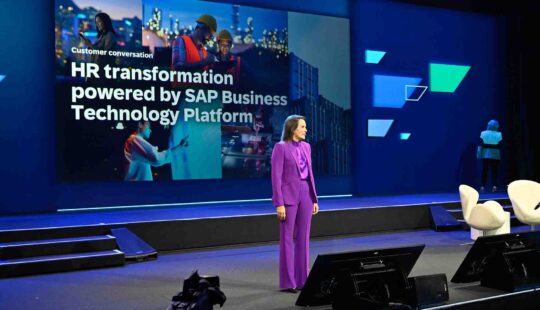Kaspersky is one of the world’s leading cybersecurity companies, and its innovative technologies protect businesses, industrial and critical infrastructure, and governments, as well as individual users across the globe. The company serves a single goal: to defend the digital world and make it safer for everyone.
The driving force of Kaspersky is its employees – the world-class professionals who research cyber-threats and create leading security technologies. The company relies on the knowledge and expertise of its employees, and therefore strives to provide an exceptional workplace experience for its people to attract and retain the best talent.
“We have long known that, to make Kaspersky a great place to work, we need to listen to the wants, needs, and desires of our employees,” says Marina Alekseeva, the company’s chief human resources officer. “Previously, we didn’t have a unified resource to conduct employee surveys, and we wanted to launch a platform that we could integrate with our core HR system to listen to employees’ feedback more regularly, to understand how they feel and learn about their concerns.”
To support the shift to a continuous listening strategy, Kaspersky selected SAP Qualtrics Employee Engagement to help gather employee experience data at regular touchpoints and gain insights based on employee feedback.
Kaspersky deployed the SAP Qualtrics Employee Engagement solution in just four weeks, building dynamic surveys and response surveys all while working remotely due to the COVID-19 pandemic. Integration between the SAP Qualtrics Employee Engagement solution and SAP SuccessFactors Human Experience Management (HXM) Suite enables the company to combine employee experience data with operational HR data to get a better understanding of its workforce.
Kaspersky conducted 10 global surveys and more than 30 local pulse surveys in 2020, providing new insights into the employee experience and helping the company to identify areas for improvement.
The results were very encouraging: 80% of Kaspersky’s 4,000 employees participated in the 2020 global engagement survey (a 14% increase on the previous year), and shorter pulse survey participation rates were also high. Moreover, 50% of employees took the time to enrich their responses with free-text comments, providing deeper insights into their thoughts and feelings.
Business leaders also benefit from instant access to survey analytics. For example, in the past, they could wait up to two months to see the outcome of a global engagement survey; today, they can track results and participation rates in real time via interactive dashboards.
But what’s the point of conducting employee surveys and gathering data if you don’t act on it? With unique insight into the employee experience, Kaspersky can take targeted action to support its people, fast. For example, just two days after receiving feedback on remote working conditions, Kaspersky made a new company policy to deliver a desk chair to any employee who needs one, so that they could work more comfortably – and therefore productively – from home. Although it may seem trivial, having a comfy chair can make a huge difference to your employees’ health, well-being, and happiness. Kaspersky wants to ensure that its people have everything they need to work at their best.
Regular pulse surveys also gave managers a convenient way to check in with their team while they were working remotely during the COVID-19 lockdowns, helping them to monitor employee well-being and workload, and to provide support to prevent burnout and maintain pre-pandemic performance levels.
“Understanding our employees is critical to everything we do,” says Alekseeva. “With the SAP Qualtrics Employee Engagement solution, we get regular feedback that helps us to build a more attractive and engaging workplace.”
Edith Krieg is part of SAP Reference Management and Content.



